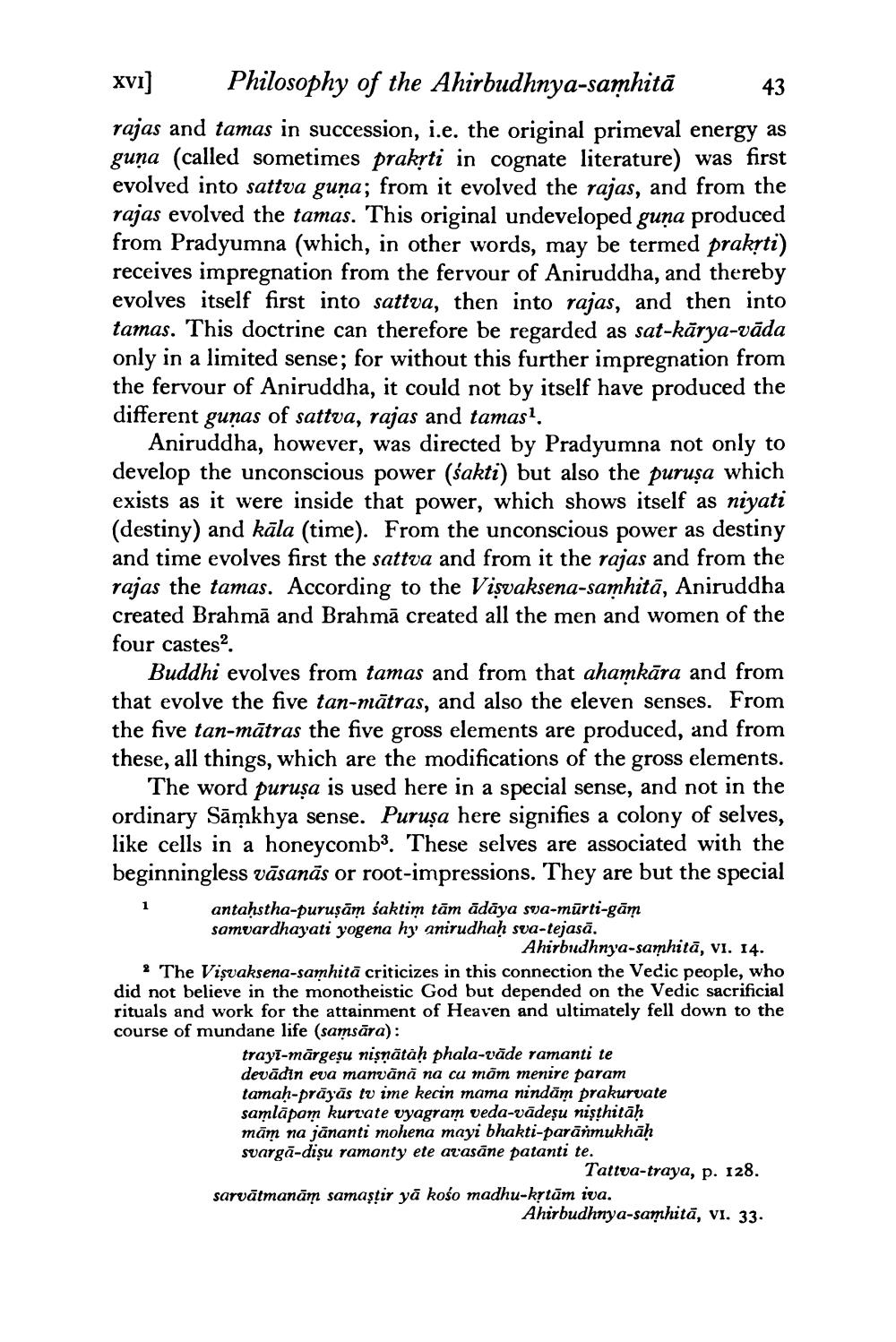________________
XVI] Philosophy of the Ahirbudhnya-samhitā 43 rajas and tamas in succession, i.e. the original primeval energy as guna (called sometimes prakyti in cognate literature) was first evolved into sattva guņa; from it evolved the rajas, and from the rajas evolved the tamas. This original undeveloped guņa produced from Pradyumna (which, in other words, may be termed prakrti) receives impregnation from the fervour of Aniruddha, and thereby evolves itself first into sattva, then into rajas, and then into tamas. This doctrine can therefore be regarded as sat-kārya-vāda only in a limited sense; for without this further impregnation from the fervour of Aniruddha, it could not by itself have produced the different guņas of sattva, rajas and tamas?.
Aniruddha, however, was directed by Pradyumna not only to develop the unconscious power (sakti) but also the purușa which exists as it were inside that power, which shows itself as niyati (destiny) and kāla (time). From the unconscious power as destiny and time evolves first the sattva and from it the rajas and from the rajas the tamas. According to the Visvaksena-samhitā, Aniruddha created Brahmā and Brahmā created all the men and women of the four castes
Buddhi evolves from tamas and from that ahamkāra and from that evolve the five tan-mātras, and also the eleven senses. From the five tan-mātras the five gross elements are produced, and from these, all things, which are the modifications of the gross elements.
The word puruşa is used here in a special sense, and not in the ordinary Sāmkhya sense. Puruşa here signifies a colony of selves, like cells in a honeycomb3. These selves are associated with the beginningless vāsanās or root-impressions. They are but the special
antaḥstha-puruṣām saktim tām ādāya swa-mūrti-gām samvardhayati yogena hy anirudhah sua-tejasā.
Ahirbudhnya-samhitā, vi. 14. 2 The Vişvaksena-samhitā criticizes in this connection the Vedic people, who did not believe in the monotheistic God but depended on the Vedic sacrificial rituals and work for the attainment of Heaven and ultimately fell down to the course of mundane life (samsāra):
trayi-mārgeșu nişnātāḥ phala-vāde ramanti te devādın eva manvānā na cu mām menire param tamah-prājās tv ime kecin mama nindām prakurvate samlāpam kurtate vyagram veda-vādesu nişthitäh mām na jānanti mohena mayi bhakti-parāňmukhāh svargā-dișu ramanty ete avasāne patanti te.
Tattva-traya, p. 128. sarvātmanām samaştir yā kośo madhu-krtām iva.
Ahirbudhnya-samhitā, vi. 33.




